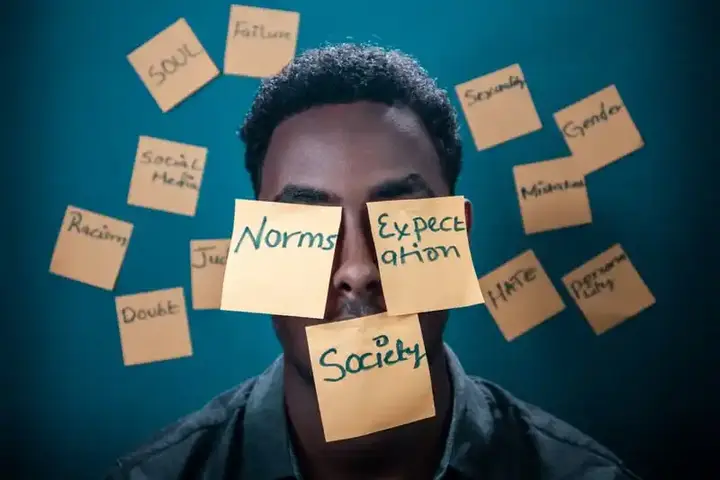10 things smart people never share with anyone
In an age where digital fingerprints are bigger than life and where personal boundaries are often blurred, silent wisdom lies in the choices of intellectually intelligent people. These individuals, the quiet guardians of their narratives, move with deliberate caution that preserves their interests, mental integrity and privacy. But what do smart people choose to hide from the public? And why are they walking so cautiously on the tight rope of information exchange? Let's take a closer look at ten important things smart people prefer to keep under wraps.
Show key points
- Highly intelligent individuals often conceal the full extent of their knowledge to avoid being overwhelmed by expectations or obligations.
- They tend to keep their financial circumstances private to avoid judgment, envy, or becoming targets of opportunism.
- Smart people closely guard their personal success strategies to preserve their uniqueness and maintain a competitive edge.
- ADVERTISEMENT
- They refrain from openly discussing their insecurities or emotional vulnerabilities as a way of protecting themselves from potential manipulation.
- The depth and reach of their influential networks are typically kept under wraps to prevent misuse and protect valuable relationships.
- Personal and family matters are treated with strict confidentiality out of respect and a desire to maintain healthy boundaries.
- Whether pursuing self-improvement or planning for future moves, intelligent individuals prefer to act quietly, valuing autonomy and minimizing outside interference.
Full extent of their knowledge or experience
Smart people often hide their abilities or true knowledge. They understand that revealing too much can lead to an excessive amount of requests for help or guidance and can also set unreal expectations for their performance. They can traverse their professional terrain more easily by keeping the full range of their abilities to themselves. They keep them irreplaceable without becoming the right person for every problem or project thanks to this delicate balance.
Recommend
Financial situation

Smart people tend to keep their finances private, but money talks. They know very well that revealing information regarding their profits, savings, investments, or general financial situation can be a source of unfair criticism, jealousy, or even turn them into an easy target. It is for this reason that they prefer to hide their financial circumstances. By doing so, people can interact socially without an extra layer of financial bias, ensuring that their relationships are built on sincere bonds and respect for each other. This also includes trying to show an atmosphere of fiscal neutrality rather than making clear claims of financial difficulties.
Success Formulas
The path to success is usually paved with personal insights, unique strategies, and a good dose of hard-earned wisdom. Smart individuals treat this knowledge as their own intellectual property, sharing it sparingly to maintain competitive advantage. It is not selfishness, but rather an acknowledgement that the free distribution of their blueprint for success can weaken its effectiveness and unique advantage. They may provide guidance and guidance, but basic strategies, especially those related to personal habits, innovative methods, or investment methods, are closely guarded.
Personal vulnerabilities and insecurities
We all have our weaknesses, but you won't find smart people who broadcast their weaknesses. They are aware of the strength of weakness but they are also aware of the risks. This does not mean that they live their lives as emotionless robots. But to protect themselves from potential harm or manipulation in wider circles, they are very selective about who to open up to about their fears, doubts, and insecurity. In this way, they maintain their dignity and avoid using their weaknesses as a weapon against them.
Exclusive networks or connections

In the age of networking, who you know may be just as important as you do. Although smart people often have networks that they have built over time, they don't use it as social currency. Because ostentatious communications can attract the wrong kind of attention and requests, they often keep their most valuable relationships and the extent of their network somewhat secret. Doing so prevents them from being seen as mere springboards for more influential contacts and ensures that their relationships are valued for the right reasons, protecting their interests and those of their relationships.
Personal and family matters
The dynamics of personal and family life are very complex and special. Smart people are particularly interested in this, carefully choosing what they reveal about their home lives, relationships, and family issues. Such an appreciation is inherent in respect - for themselves and for the people involved. They understand that once personal details are shared, they cannot be unshared and can lead to unwelcome scrutiny, judgment, or compassion. It's all about creating a healthy boundary between personal life and the outside world.
Self-improvement efforts
Self-improvement is a journey of personal discovery and growth, a journey that smart people often quietly take. Whether it's fitness goals, educational activities, or therapy, they understand the value of focusing on their growth without the added pressure of external expectations. This special approach allows for real development, away from the influence of societal norms or unwanted advice from passers-by. They know that real progress is a personal matter, not a performance to win the approval or applause of others.
Details of past failures or errors

Although they understand the value of learning from mistakes, smart individuals are also selective about what information they reveal and who they reveal. It's about progress and growth, not about covering up their past. Rather than delve into the details of the failures themselves, they prefer to highlight the lessons they have learned and how they have changed. It helps them maintain a positive public image without placing their past transgressions at the center of their identity.
Next step
When planning major decisions like a career transition, a new business venture, or any significant life change, smart people tend to keep their cards close to their chests, until their plans are implemented. This strategy prevents undue influence, sabotage or unnecessary speculation that can hinder or influence their decisions. By working under the radar, they can work quietly to achieve their goals with autonomy and minimal outside interference.
Backup Plans
Having a Plan B can be practical, but smart individuals usually keep these contingencies to themselves. Not because they lack confidence in their basic plans, but because they recognize the importance of appearing focused and committed. Sharing too much about alternative pathways may give the impression of doubt or lack of commitment to their initial goals. So, they keep their eyes on the prize. They do everything they can for their first choice plan with the comfort of knowing they have options if things don't work out.
By adhering to this selective sharing philosophy, smart people navigate their personal and professional lives through a thoughtful approach that values privacy, independence, and the integrity of their relationships. By remaining in control of what they reveal, they ensure that their interactions are real and that their narrative remains untainted by undue influence or exposure. So, it's probably worth taking a page from their book and thinking twice about what you're sharing and with whom.
![]()
Tranquility and Beauty in Djerba Island in Tunisia
Djerba, or the "Island of Dreams," enchants with its pristine beaches and rich history. Combining the charm of the Mediterranean, its multicultural heritage, and the spirit of local life, it is an ideal destination for relaxation and adventure amidst breathtaking natural landscapes and authentic cultural experiences. more- ADVERTISEMENT
![]()
A book you may be interested in: Dopamine fasting
A book that might interest you - Dopamine Fast more- ADVERTISEMENT
![]()
The most expensive paintings that you could have painted yourself
The Most Expensive Paintings You Probably Could Have Painted Yourself more- ADVERTISEMENT
![]()
75% of the global diet is produced by just 12 plants and 5 different animals
Our diets rely on just a few crops, making them fragile and less nutritious. Embracing lesser-known, diverse foods like millet and winged beans can boost health, support farmers, and protect against climate and crop threats. more- ADVERTISEMENT
![]()
Tsunami Survival Guide: Crucial Tip to Stay Safe
The "Tsunami Survival Guide" offers vital tips on how to detect early warnings, prepare emergency kits, and plan safe evacuation routes. It emphasizes the importance of quick action, staying informed, and knowing where to seek refuge to increase your chances of survival during this powerful natural disaster. more- ADVERTISEMENT
![]()
Oran: a fusion of music and culture in the pearl of the Mediterranean
Oran, a stunning coastal gem on the Mediterranean, charms with its mix of history, vibrant culture, and rai music roots. From its Andalusian heritage to lively souks and beaches, the city fuses tradition with modern life, offering visitors unforgettable sights, sounds, and flavors. more- ADVERTISEMENT
![]()
Dar Al-Hajar ... The seven-story stone palace in Wadi Dhahr, Yemen
Perched atop a massive rock near Sana'a, the Stone Palace blends seamlessly into the mountain, appearing ancient though built in the 1930s. Once a royal summer retreat, it's now a museum showcasing Yemen’s rich architecture, with its war-castle design, gardens, and maze-like interior captivating all who visit—or admire from afar. more- ADVERTISEMENT
![]()
Mental flexibility - what is it? And how to get there?
Mental flexibility - what is it? And how to get there? more- ADVERTISEMENT
![]()
The Five Great Scandals in Climatology
Climate science has faced serious issues, from fake datasets in top journals to the use of extreme, unrealistic emission scenarios. Political pressure often blocks correction, making it hard to fix flawed research. These scandals show how climate science can struggle when science and politics mix too closely. more- ADVERTISEMENT
![]()
How to overcome obstacles and detect obstacles
Mindshift is all about changing your mindset to grow and overcome life’s challenges. By shifting from a fixed to an evolving mindset, facing fears, and using critical and creative thinking, you unlock hidden talents and new possibilities. It’s not easy, but with effort and support, it’s truly worth it. more- ADVERTISEMENT





















